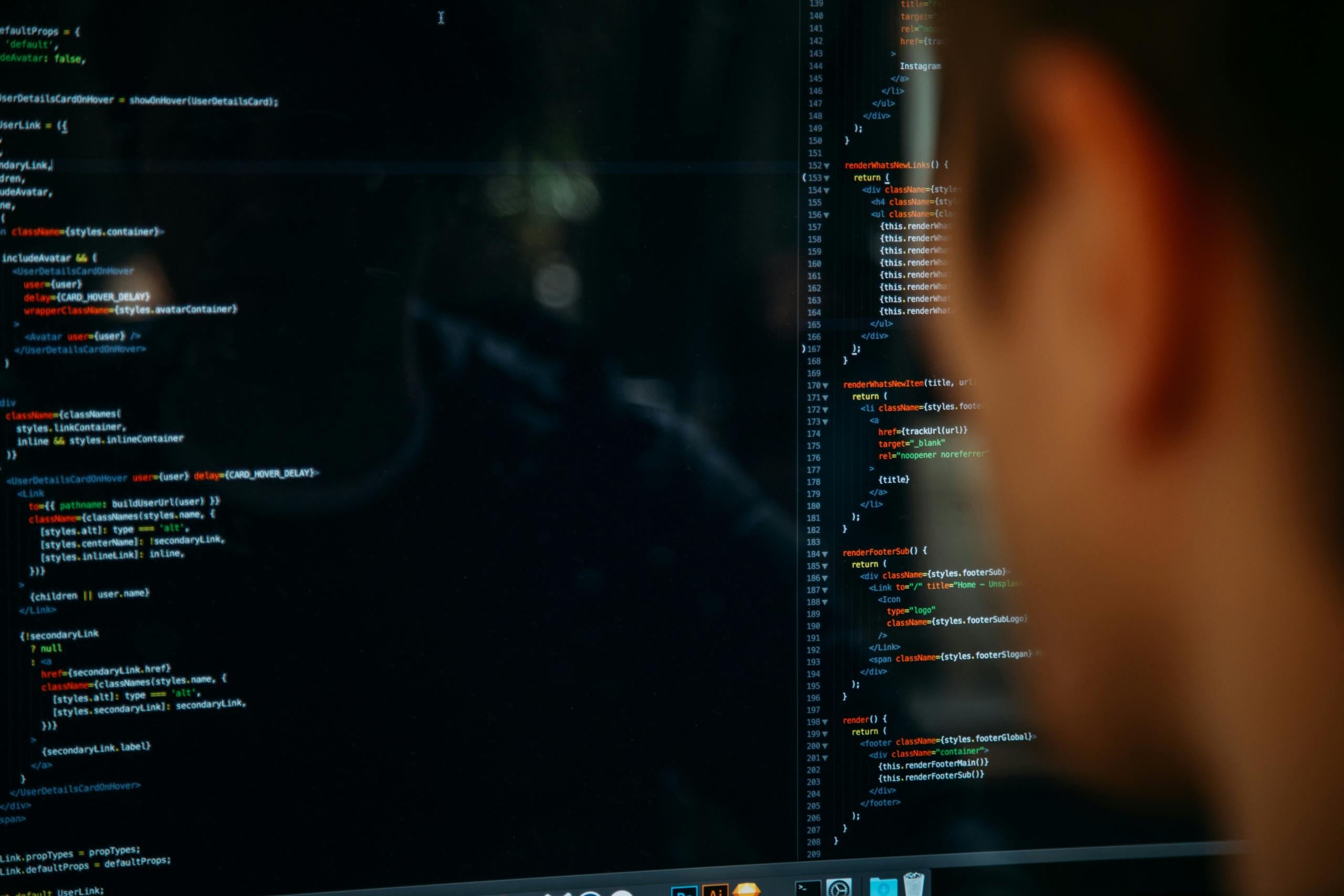Welcome to the world of Java, a versatile and widely used language that forms the backbone of many software applications. Whether you are a budding developer or simply exploring what Java courses have to offer, this guide not only answers the question, what is Java for beginners but also provides the steps you will need to take to learn Java and set up a programming and coding environment.
If you want to know more about Java, its syntax, data types and control structures, then keep reading.

Setting Up Your Java Environment
If you want to learn Java, your first step is to install the Java Development Kit (JDK). To get started, download the JDK from the official Oracle website or other trusted sources like OpenJDK and make sure that you have the version that is compatible with your operation system. In your JDK you will find the Java Runtime Environment (JRE) and the Java compiler, both of which are necessary for running and translating your code into executable programmes.
The installation process can be intimidating for beginners, however, this is easily overcome with the guidance of an expert Java tutor who can guide you through setting up the environment, troubleshooting common issues and ensuring that you have a solid foundation for your Java journey.
An important part of your Java set up includes choosing an Integrated Development Environment (IDE) to streamline your coding process and enhance productivity. Popular IDEs for Java include Eclipse, IntelliJ IDEA, and Visual Studio Code (VS Code). Each IDE offers unique features and benefits, catering to different needs and preferences.
Why Use an IDE?

IDEs provide tools like code editors, debuggers, and build automation tools. Features such as syntax highlighting, code completion, and real-time error checking help you write clean and efficient code for Java programming. In addition, IDEs integrate version control systems and make it easier to manage code changes and collaborate with others.
As there are a few popular IDEs on the market, namely Eclipse, IntelliJ IDEA and Visual Studio Code, it is advisable to carefully compare their features and pros and cons. Be aware that some tools will be heavy on your system’s resources and even affect performance, while others are highly customisable and boast a vast library of plugins.
If you are new to programming, the best way to choose these tools is to discuss your options with a private tutor or teacher of a Java for Beginners course.
But this is only the beginning of an explanation to the question: what is Java?
Java for Beginners: What to Expect
Once your environment is set up, a beginner’s course in Java programming will typically cover several foundational topics:
What is Java?
Your introduction to What is Java will include descriptions and examples of how powerful Java programming enables developers to create robust, scalable applications. In addition, you will find out how the platform-independent nature of Java code can run on any device with a compatible Java Virtual Machine (JVM), which makes it highly versatile.
Java Syntax
In Java for beginners, you will learn about syntax which is the set of rules that define how Java programming is written and interpreted. Understanding basic syntax is crucial for writing valid Java code.
Hello World Programme
Hello World" is the quintessential beginner's programme in Java that sends out the phrase "Hello, World!" to the console. It serves as an important introductory module in Java courses because it demonstrates the basic structure of Java, which includes class definition, the main method, and simple output. This straightforward example helps novices understand essential concepts such as syntax, compilation, and execution and lays a foundational understanding for more complex programming tasks.

Data Types in Java
You can also expect to learn about data types in your Java programming course. Learning data types is crucial for Java for beginners because they form the basis for all operations and data manipulations in the language. In short, data types in Java such as integers, floating-point numbers, characters, and booleans define the kind of data a variable can hold. Understanding data types ensures efficient memory usage and helps prevent errors so that beginners can write clear, correct, and optimised code. Mastering data types is essential for progressing to more complex programming concepts, like control structures.
Control Structures
Control structures in Java are constructs that manage the flow of a programme's execution, including decisions (if-else statements), loops (for, while, do-while), and branching (switch, break, continue). They are vital for beginners learning Java code because they enable the creation of dynamic and responsive programmes.
By mastering control structures, you will implement logic that adapts to different conditions, perform repetitive tasks efficiently, and manage programme execution flow to form the foundation for building complex and functional Java applications.
If-Else Statements

An if-else statement in Java code evaluates a condition: if true, it executes one block of code; if false, it executes an alternate block, enabling decision-making in programs.
Switch Statements
A switch statement in Java evaluates an expression, matches a value against multiple case labels, executes the corresponding code block, and provides an efficient way to handle multiple conditional branches.
For Loops
A for loop in Java iterates a block of code a specific number of times, using an initialiser, a condition, and an increment or decrement expression to control the iteration process.
While Loop
A while loop in Java iterates a block of code repeatedly as long as a specified condition remains true and offers a flexible way to execute tasks based on dynamic conditions.
Careers in Java
There’s no doubt that proficiency in Java unlocks numerous, satisfying career opportunities. Java Developers, for instance, are responsible for constructing and maintaining applications that focus on expansive enterprise systems.
Java programming is literally used everywhere, but a few noteworthy examples include Android developers who harness Java code and its potent platform capabilities to craft mobile applications tailored for their devices.
In addition, backend developers leverage Java for server-side logic and database management to ensure the smooth operation of web applications. Meanwhile, Big Data Engineers use Java within frameworks like Hadoop to process and dissect vast datasets. And if none of these interest you, what about jobs in enterprise application development where developers use Java's scalability to engineer large-scale systems for prominent organisations?

There’s no doubt, jobs for Java programmers are in high demand, all over world and the best part, is that the barrier to entry is not that high especially when private tutors are available to teach you Java for beginners.
Finding the Right Tutor to Learn Java
The expert guidance of a Java tutor is invaluable when navigating the complexities of IDE setup. With personalised guidance, you can expect to grasp each aspect of IDE configuration at your own pace, while troubleshooting support from your tutor will also ensure swift resolution of issues.
Furthermore, learning from seasoned developers instils best practices from the outset and creates efficient coding habits that would be required in large organisations.
Private tutors are also available to provide advanced tips and continuous support to further enrich your learning journey. This will empower you to tackle real-world applications with confidence.
Beginning your Java development journey with an IDE like Eclipse, IntelliJ IDEA, or VS Code is pivotal. Though the setup process may seem daunting, getting off on the right foot with the right approach is paramount. This is where investing in a Java tutor mitigates potential obstacles and improves your chances of a productive learning experience.
Finally, when you learn Java and its fundamentals—its syntax, data types, and control structures—you will establish robust groundwork for future endeavours in programming. In the long run, Java offers a perpetual learning journey that offers continuous growth and fulfilment in the dynamic world of software development.
Happy coding!
Summarise with AI:















